Penis Augmentation in Nepal
Search and Compare the Best Clinics and Doctors at the Lowest Prices for Penis Augmentation in Nepal
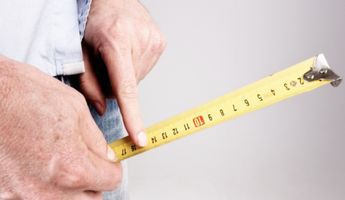
Find the best clinics for Penis Augmentation in Nepal
No clinics available
Egypt offers the best prices Worldwide
Price: $ 500

- Home
- Nepal
Compare Before & After Photos of _procedure_photos.phpPenis Augmentation
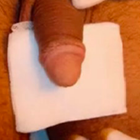
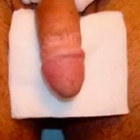
Front view
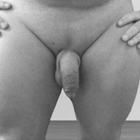
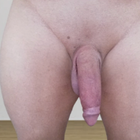
Front view
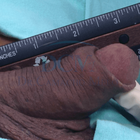
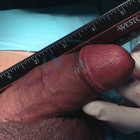
Half-side view
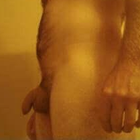
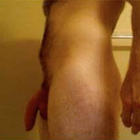
Full-side view
WHY US?
At Medijump, we're making medical easy. You can search, compare, discuss, and book your medical all in one place. We open the door to the best medical providers worldwide, saving you time and energy along the way, and it's all for FREE, no hidden fees, and no price markups guaranteed. So what are you waiting for?

Free

Best Price

Widest Selection

Risk-Free
What you need to know about Penis Augmentation in Nepal
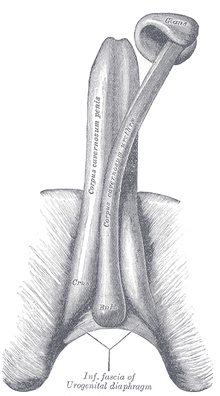
Also known as a Penis Enlargement, Penis Enhancement, Phalloplasty or the Penoplasty and involves any technique aimed to increase the size of the penis, where some procedures aim to increase total length, others may increase the shaft's girth. The Penile Implant is an alternative technique that is more common among those with erectile dysfunction. The procedure is performed under general anesthetic and can be completed in 45-60 minutes.
The most common procedure involves lengthening the flaccid penis by releasing the muscle at the Mons Pubis, but there is also the option for a fat transfer, which combined with liposuction, is particularly useful for increasing the girth. Note that these procedures aide in increasing the length of the flaccid penis only, the erect length remains the same.
To increase the length of the erect penis, a form of penile disassembly is required, where the head is detached and the extra tissue is grafted into the shaft - this technique takes longer and is more expensive. All techniques require two nights of hospitalization and a recovery time of 10-14 days in Nepal.
What is the cost of Penis Augmentation in Nepal?
The expense related to the Penis Augmentation in Nepal can differ based on many factors. These encompass the particular details of the operation, the competency of the medical professional, and the amenities provided by the selected healthcare center.
Although being mindful about cost is logical, it's vital not to sacrifice the standard of treatment. A credible healthcare institution will be clear about the expenses, offering you an itemized elucidation. Additionally, it's beneficial to explore if your medical insurance provides any coverage for the operation or related care.
What does a Penis Augmentation Procedure Involve?
Before proceeding with the surgery, you will have an extensive consultation with your surgeon to determine whether the procedure is suitable for you. You will discuss your expectations and it is important to be realistic to avoid disappointment. You should also inform your surgeon about the reasons why you want to undergo the surgery. Your surgeon will get you to do a physical examination to find out if you have any medical conditions and to help your surgeon evaluate the best treatment option for your specific case.
During the surgery you will be given general anesthesia, meaning you will be asleep and will not feel anything. The most common types of penis augmentation surgery are:
- Penis girth surgery is aimed to increase the thickness of your penis in a flaccid and erect state. Your surgeon will perform a small liposuction procedure to harvest fat from the abdomen, thigh, or buttock. The fat is then purified with a system to improve the quality of the fat. The last step is distributing the fat along the shaft of the penis to thicken it. Some studies claim an increase in girth of around 1.4 cm to 4 cm.
- Penis length surgery can give the flaccid penis an average of 2 cm, but it cannot change the size of the erect penis. During the surgery, your surgeon will cut the ligament where the penis is attached to the pubic bone. Then, your surgeon will perform a skin graft at the base of the penis to allow for extra length.
-
Liposuction is a surgical procedure to remove fat from below the abdomen which can reveal up to 2 cm of the penis that had previously been buried. By removing excess fat around the pubic area, a partly buried penis can appear more prominent. This procedure works well with men who have a large tummy. However, if the man puts on weight again, the fat will return to the pubic area and may bury the penis again.
-
Penuma is a device inserted under your penis skin to make it longer and wider. It is crescent-shaped and made of medical-grade silicone. It comes in three sizes: large, extra-large, and extra-extra-large. It will be designed to fit your penis shape. Your surgeon will make an incision in your groin area just above the base of your penis to insert the Penuma. The device will stretch the penis skin and tissues to make your penis look and feel larger. If you are not already circumcised, you will need to do it before the procedure.
How Long Should I Stay in Nepal for a Penis Augmentation Procedure?
In general, it takes around 45 minutes to an hour to complete a penis augmentation. You may go back to your hotel on the same day of the surgery after the effects of the anesthesia wears off. However, there are some cases where the patient will require a two nights stay at the hospital.
Plan to stay in Nepal for at least 10 to 14 days. During your stay, it will allow for the initial recovery and you will attend follow-up checkups.
What's the Recovery Time for Penis Augmentation Procedures in Nepal?
You will need to take some time off work after this surgery, normally one week if your job does not involve any physically demanding activity. If your job involves a lot of moving around, you can go back within 2 weeks.
Avoid any strenuous activity, including exercise for around six weeks. Do not have any sexual intercourse or masturbation for around four weeks. It may take around three to six months before you will see the completed result.
What sort of Aftercare is Required for Penis Augmentation Procedures in Nepal?
Your surgeon will give you a set of instructions about post-operative care and you will need to follow the instructions. Pain and soreness following the surgery are normal and your surgeon will give you painkillers to control the pain. A surgical dressing will cover your penis, which will need changing at intervals.
You will need to keep the area clean, but avoid getting water on the area. Use a flannel or a sponge to clean the area. Your surgeon may ask you to massage your penis on a daily basis to prevent lumps from forming on the surface and to stop it from becoming lop-sided. Avoid heavy lifting and other strenuous activity and wait for a month before you resume any sexual activities.
What's the Success Rate of Penis Augmentation Procedures in Nepal?
The success rate is high and the procedure can give the patient a significant confidence boost. Patients often cite the improvement of premature ejaculation (sexual stamina) and increased libido. Feeling and sensitivity are not affected and the patient is still able to ejaculate as normal, therefore the chances of conceiving are not impacted. A study found that 81% of patients who had Penuma rated their results high or very high.
For an animated display of how the penis augmentation procedure works with before and after images, watch this short video.
Are there Alternatives to Penis Augmentation Procedures in Nepal?
The penile implant is an alternative technique, but it is more common among those with erectile dysfunction. Non-surgical alternatives to this surgery are pills, lotions, vacuum devices, penile extenders, and jelqing (stretching techniques). However, no study confirms the success of those procedures.
What Should You Expect Before and After the Procedure
Familiarizing yourself with the anticipation of the Penis Augmentation can substantially decrease stress and better equip you physically and emotionally. Before the process, you'll undertake an in-depth conversation with your medical expert, discussing the procedure, potential hazards, and projected results. They will mentor you on the essential preparatory steps, which might encompass advice on nutrition and lifestyle patterns. It's crucial to abide by these guidelines to set the best possible environment for a triumphant procedure and speedy recovery.
After the Penis Augmentation, it's ordinary to feel some level of discomfort, inflammation, or bruises, which are expected after-surgery responses and part of the natural recovery course. Your medicinal specialist will hand over comprehensive after-surgery care instructions, including medicines timings, relaxation, proper diet, and sleep positions. Complying entirely with these instructions can encourage a speedy recovery and lessen possible complications.
What are Potential Risks of Penis Augmentation?
Nonetheless, there are still risks and complications that you will need to be aware of.
- For penis length surgery, the cut ligament may not provide the support it originally did, which could lead to less satisfactory erections. In addition, it can also cause pain during sex.
- For girth surgery, some patients may experience scarring, disfigurement, infection, and lumpiness.
- Other complications include implant coming apart, and blood cloth.
Whilst the information presented here has been accurately sourced and verified by a medical professional for its accuracy, it is still advised to consult with your doctor before pursuing a medical treatment at one of the listed medical providers
No Time?
Tell us what you're looking for and we'll reachout to the top clinics all at once
Enquire Now

Popular Procedures in Nepal
Prices Start From $95

Prices Start From $556

Prices Start From $1,795

Prices Start From $1,000

Prices Start From $322

Prices Start From $275

Recommended Medical Centers in Nepal for procedures similar to Penis Augmentation

- Interpreter services
- Translation service
- Religious facilities
- Medical records transfer
- Medical travel insurance
- Health insurance coordination
- TV in the room
- Safe in the room
- Phone in the room
- Private rooms for patients available

- Interpreter services
- Translation service
- Religious facilities
- Medical records transfer
- Medical travel insurance
- Health insurance coordination
- TV in the room
- Safe in the room
- Phone in the room
- Private rooms for patients available

- Interpreter services
- Translation service
- Religious facilities
- Medical records transfer
- Medical travel insurance
- Health insurance coordination
- TV in the room
- Safe in the room
- Phone in the room
- Private rooms for patients available

- Interpreter services
- Translation service
- Religious facilities
- Medical records transfer
- Medical travel insurance
- Health insurance coordination
- TV in the room
- Safe in the room
- Phone in the room
- Private rooms for patients available
Penis Augmentation in and around Nepal
Introduction
Nepal is a country in South Asia, sandwiched between India and China. Home to the mighty Mount Everest, this incredible country has diverse landscapes, from the Himalayan Mountains in the north to the sprawling plains in the south. Towering mountains, charming hill villages, golden mountains, and jungle wildlife, Nepal is truly one of the world’s best travel destinations. Beyond its nature and culture, this country is also increasingly popular for its healthcare. With its affordable high-quality medical facilities, Nepal is considered to have immense potential for medical tourism, due to the availability of good infrastructure, highly trained specialists, modern medical equipment, and relatively cheaper medical treatment. In fact, it’s currently the fastest-growing segment of the country’s tourism. Medical tourists coming to Nepal are usually seeking exceptionally high medical treatment at competitive rates. Some of the most sought after procedures are dental treatments, cardiac services, and neurological treatments.
Popular Cities and Regions in Nepal
Kathmandu, the capital and largest city in Nepal, is historic, enticing, spiritual, and vibrant. One of the most famous attractions in the city is the old town, where tourists can find the most popular Tibetan pilgrimage site, the Kathesimbhu Stupa. Another top attraction is Kumari Bahal, which is the home of the Kumari, the girl who is selected to be the town’s living symbol of Devi. Tourists looking to relax in a more laid-back vibe usually go to Pokhara. Stretching along the shore of an idyllic lake, it offers spectacular scenery. It also boasts a thriving adventure-sports industry, from paragliding to paddle boats. Anyone who wants to experience an ancient way of life should visit Bhaktapur, which is filled with artisan weave cloths, amazing cuisine, and beautiful temples.
Transport in Nepal
The main international airport in Nepal is Tribhuvan International Airport, which serves flights to and from numerous cities in Asia, such as Delhi, Hong Kong, and Dubai. Getting around the country can be a challenge, but public transportation is available. Buses are affordable, however, they tend to be overloaded. Tourist buses are the best way to travel around as they are in good condition.
Visas in Nepal
Citizens of India do not need a visa to enter Nepal without restrictions. Citizens of almost all nations, including the US and all EU countries, can obtain a visa on arrival that is valid for up to 90 days. Only holders of passports from 12 countries, need to have a visa in advance.
Weather in Nepal
Nepal has five seasons. Spring starts in March until May, it offers pleasant weather that is not too cold nor too hot. Summer arrives in June and ends in August, bringing hot temperatures of around 28°C. Monsoon from June to September receives rain almost every day. Autumn and pre-winter bring sunny and pleasant weather, while winter can be very cold.
Additional Info
-
Local Currency: Nepali rupee (NPR) is the official currency. 1 USD converts to 115 NPR.
-
Money & Payments: ATMs are available in major cities, such as Kathmandu and Pokhara. Credit cards are accepted in major hotels and restaurants. Tipping is expected.
-
Local Language: The official language is Nepali. English is mainly spoken in tourism areas.
-
Local Culture and Religion: Hinduism and Buddhism coexist in Nepal peacefully. Islam, Kiratism, and Christianity are in the minority.
-
Public Holidays: Some of the most celebrated public holidays are Maha Shivaratri, Buddha Jayanti, Sambidhaan Diwas, and Bhaitika.
Popular Searches
- Plastic Surgery in Thailand
- Dental Implants in Thailand
- Hair Transplant in Thailand
- Breast Augmentation Thailand
- Gastric Sleeve in Thailand
- Gender Reassignment Surgery in Thailand
- Laser Hair Removal in Bangkok
- Botox in Bangkok
- Dermatology in Bangkok
- Breast Augmentation in Bangkok
- Coolsculpting in Bangkok
- Veneers in Turkey
- Hair Transplant in Turkey
- Rhinoplasty in Turkey
- Stem Cell Therapy in Mexico
- Rhinoplasty in Mexico
- Liposuction in Mexico
- Coolsculpting in Tijuana
- Rhinoplasty in Korea
- Scar Removal in Korea
- Gastric Sleeve in Turkey
- Bone Marrow Transplant in India
- Invisalign in Malaysia
- Plastic Surgery in the Dominican Republic
- Tummy Tuck in the Dominican Republic
- Plastic and Cosmetic Surgery in Poland
- Rhinoplasty in Poland
- Hair Implant in Poland
- Dental Implants in Poland
- IVF in Turkey